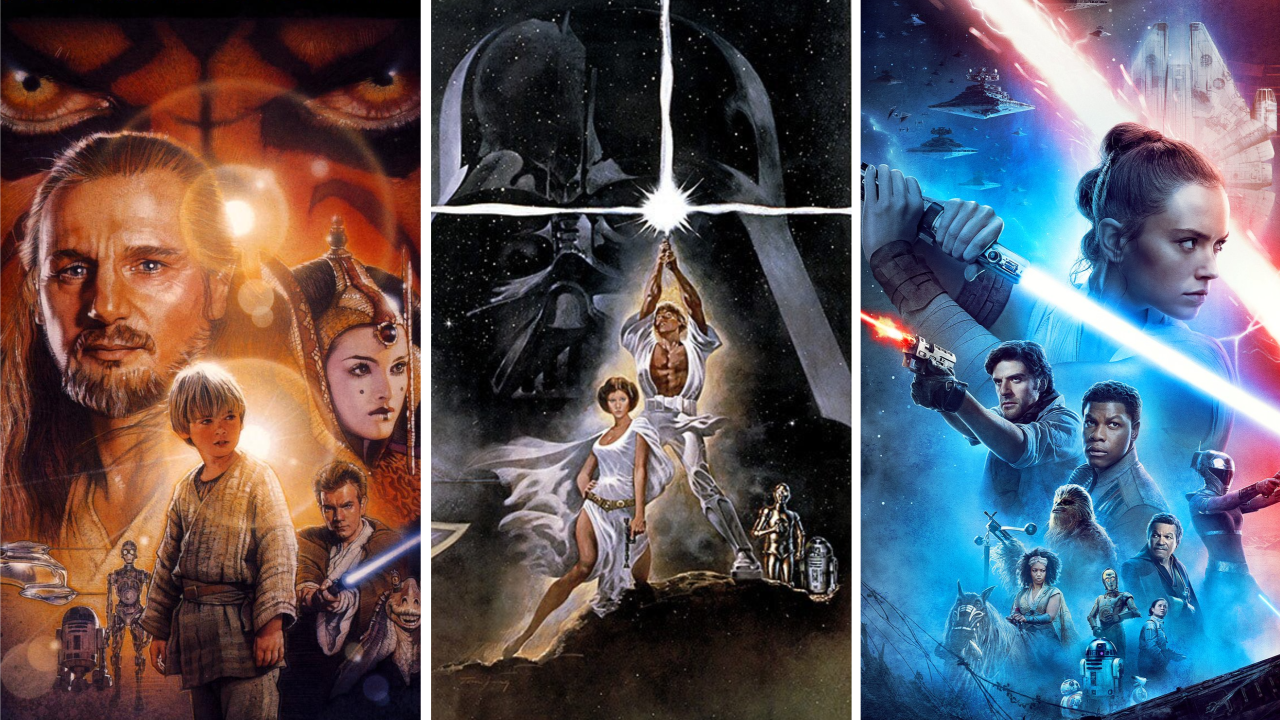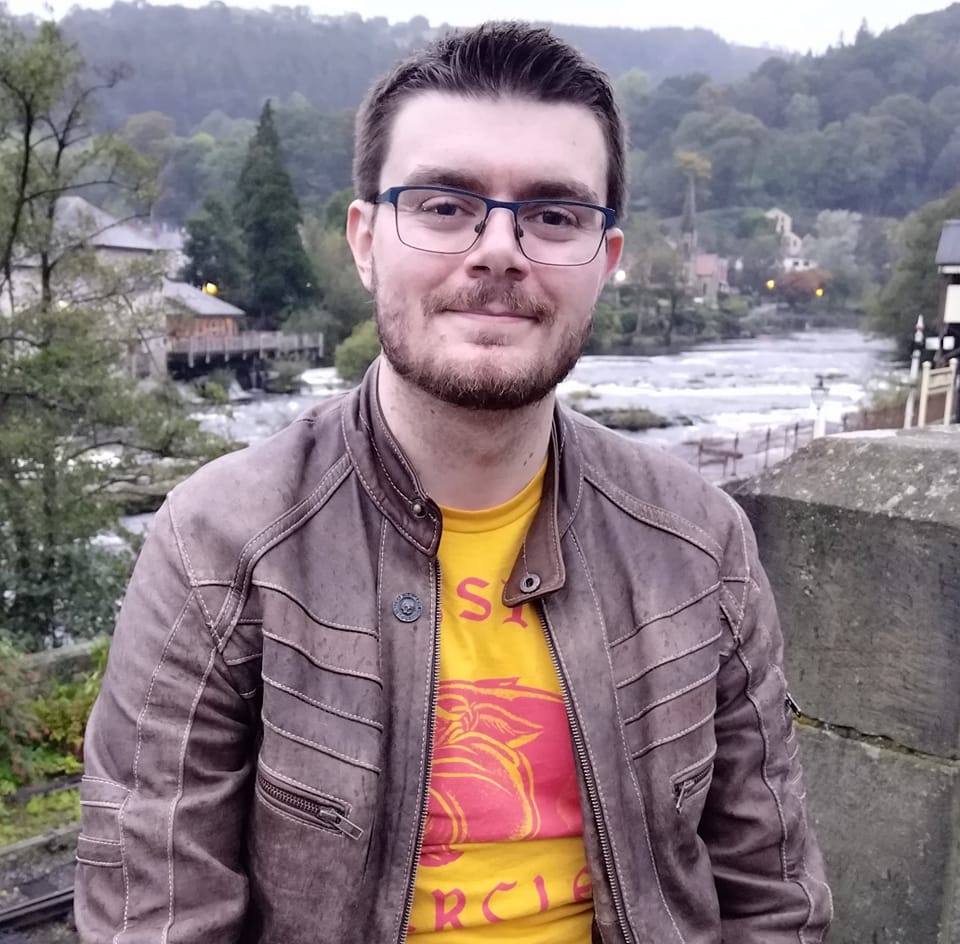“A long time ago in a galaxy far, far away…” If those words don’t fill you with childish imagination and a warming nostalgia, you’re a ghoul. Star Wars is a generation-transcending powerhouse of a franchise that, in its origins, rewrote science fiction to make it more accessible and emotional. Since then, it’s retained its relevance with three blockbuster trilogies, not to mention spin-offs and forays into every other medium imaginable.
The saga’s so massive (and non-chronological) that it can be hard to stay on top of, though. To help with that, we’ve revisited the films of the monumental Star Wars saga and put them in reverse-order of greatness. From the original game-changers to the controversial sequels, here’s every Star Wars film reviewed and ranked - and remember, the entire Star Wars saga is available to stream through Disney+.

12. Star Wars Episode I: The Phantom Menace (George Lucas, 1999)
Despite the prequels enjoying a special place in Gen-Z Star Wars fans’ hearts (mostly because of nostalgia and memes), the trilogy remains the nadir of the franchise. Wooden performances, dated effects and plots with gaping holes define these films – and nowhere do they feel worse than in The Phantom Menace. Overstuffed with exposition and lacking in action, this is largely a slog until the score and climactic ending close things out on a long-overdue high.
11. Star Wars Episode II: Attack Of The Clones (George Lucas, 2002)
Although Attack Of The Clones is frequently deemed the worst Star Wars film, we’ve slotted it above The Phantom Menace simply because more stuff happens on a larger scale. That said, there’s still no forgiving the flat acting and dumb plot, not to mention arguably the most forced and awkward love story in the history of cinema. “Romantic” lines like “I don’t like sand…” are right to live in absolute infamy.
10. Star Wars: The Clone Wars (Dave Filoni, 2008)
This backdoor pilot for the Clone Wars TV show deserves some credit for delving into the years-long intergalactic conflict that Attack Of The Clones and Revenge Of The Sith skipped over (for some reason). It also makes Anakin Skywalker seem like a three-dimensional person for the first time. However, the film is simply a few planned episodes of the TV series stapled together, and the narrative’s as incoherent as you can imagine because of it.
9. Star Wars: The Rise Of Skywalker (J.J. Abrams, 2019)
The sequel trilogy has been mocked by fans since it began but, unlike the prequels, at least they felt like real films, with some convincing acting and practical effects. That said, The Rise Of Skywalker all but affirms that there was no creative vision for the new series. It brings Palpatine back for no reason and makes death a meaningless concept with its countless onscreen resurrections. Director J.J. Abrams and his writers clearly rushed it.
8. Solo: A Star Wars Story (Ron Howard, 2018)
Solo is as good as you expect when you realise that it was beset with behind-the-scenes troubles for years. Despite some excellent action setpieces like that space western train robbery, this Han Solo origin story is something nobody asked for, bogged down by corny writing and a stretched-out runtime. Reveals like how the smuggler got his name and that The Phantom Menace’s Darth Maul is still alive reek of the laziest fan service possible, too.
7. Star Wars: The Last Jedi (Rian Johnson, 2017)
After The Force Awakens essentially remade the original Star Wars for a new generation, hopes were that its sequels could pull in a different direction rather than retreading the entire classic trilogy. To his credit, director Rian Johnson was a clear new voice with his own vision, but much of his creative decisions feel anticlimactic. Snoke, the overarching evil of the last film, dies prematurely, as does Luke Skywalker. That Canto Bight subplot is pointless as well.
6. Star Wars Episode III: Revenge Of The Sith (George Lucas, 2005)
Revenge Of The Sith carries many of the same problems as its fellow prequels, emphasising CGI over emotional weight and still having the odd awkward line here and there. However – in its faster pace and darker, climactic tone – it’s a much smoother watch than its predecessors. Ewan McGregor and an undeservedly hated Hayden Christianson act their arses off despite shoddy direction, while the excellent fight choreography gets more time in the limelight here.
5. Star Wars: The Force Awakens (J.J. Abrams, 2015)
Despite basically being a soft remake of the first Star Wars film, The Force Awakens was exactly what we needed when we got it. It reintroduced lavish practical effects and a tightly focussed “good vs evil” story to the saga. Lead actors Daisy Ridley, John Boyega and Oscar Isaac, along with the returning Carrie Fisher and Harrison Ford, rounded out this new galaxy with likeable characters. It’s just a shame about where it all headed from here.
4. Return Of The Jedi (Richard Marquand, 1983)
Although some were disappointed by Return Of The Jedi returning to a lighter tone following the more grown-up Empire Strikes Back, it’s still a rich, character-driven conclusion to the original trilogy. The big baddie that is The Emperor finally gets introduced before being disposed of by Luke Skywalker and his redeemed dad, Darth Vader, in a heartfelt finale. Meanwhile, the Endor subplot is a rather interesting Vietnam allegory that sees the guerrilla Ewoks hold their own against a technically superior Empire.
3. Rogue One: A Star Wars Story (Gareth Edwards, 2016)
Rogue One does what a prequel should do: it makes the original better for existing. Gareth Edwards’ Star Wars Episode 3.9 turns a plothole in the first film (“Why is there a massive ruddy hole in the Death Star?!”) into a powerful story of betrayal, against-all-odds heisting and sacrifice. It’s bittersweet and clearly handled with reverence. Also, that Darth Vader scene at the end – we still grin like school kids whenever we see it.
2. Star Wars (George Lucas, 1977)
George Lucas’ groundbreaking space opera removed science from science fiction to become a triumphant flight of fancy. Star Wars didn’t get bogged down in tech like Star Trek or 2001: A Space Odyssey, instead telling a more fast-paced underdog story of a farm boy becoming a galaxy-saving hero. It marked a new level of accessibility for its genre and deservedly became a megahit. The remarkable chemistry between Mark Hamill, Harrison Ford and Carrie Fisher – plus the class of Alec Guinness and Peter Cushing, and the grandeur of John Williams’ score – has drawn us all back for 45 years.
1. The Empire Strikes Back (Irvin Kershner, 1980)
The Godfather Part II. Terminator 2. The Empire Strikes Back. These three are the holy trinity of superior sequels, with Empire… earning its spot by turning the bombastic Star Wars into a dark, resonant character drama. From Han Solo and Princess Leia’s romance to Luke Skywalker choosing between his Jedi training and saving his friends’ lives, it’s an in-depth study of heroes who, on the run from a vengeful Empire, are forever on the brink of disaster. Meanwhile, everything that made the original special, from the swelling score to imaginative effects, returns in greater volume. This isn’t just the best Star Wars film or one of the all-time great sequels – you could call it the best film ever made and have a good point.

